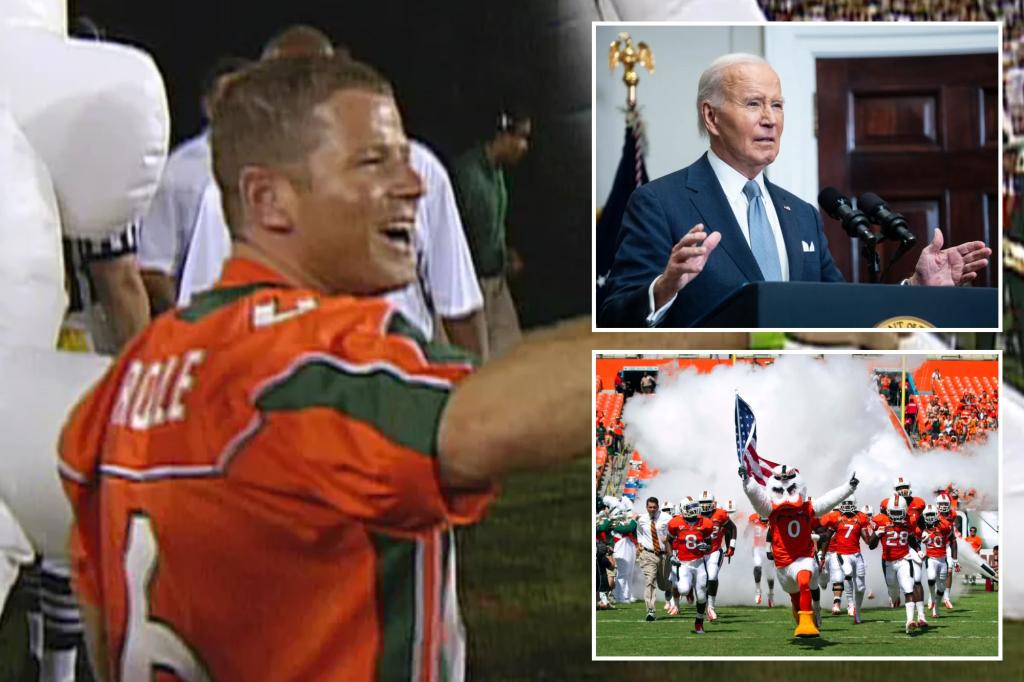Nevin Shapiro, a central figure in one of the most tumultuous scandals in college sports history, has had his prison sentence for orchestrating a massive Ponzi scheme commuted by President Joe Biden. Shapiro, initially sentenced to 20 years in 2011 and ordered to repay nearly $83 million to defrauded investors, was among the beneficiaries of a mass commutation announced by the White House. While his official release date is listed as December 22nd, records indicate he has been on home confinement since 2020. The commutation, however, does not absolve Shapiro of his criminal acts; it merely reduces his prison time without implying forgiveness for the underlying offense. The Shapiro case remains a stark reminder of the potential for corruption and ethical breaches within the realm of collegiate athletics.
Shapiro’s involvement with the University of Miami’s athletic program triggered a protracted and complex NCAA investigation, spanning over two and a half years. The probe was initiated after Shapiro contacted the NCAA to reveal his extensive involvement with Miami coaches and athletes, motivated by a desire to expose those he felt had abandoned him following his legal troubles. His claims of lavish spending on impermissible benefits for athletes sparked a deep dive into the Hurricanes’ athletic department, uncovering a web of improprieties that ultimately led to significant sanctions against the university. The investigation itself was not without controversy, marred by procedural missteps on the part of the NCAA, further complicating an already messy situation.
The NCAA’s investigation, while ultimately revealing substantial wrongdoing within the Miami athletic program, was hampered by its reliance on information obtained through questionable means. The NCAA’s enforcement department, lacking subpoena power, utilized information gathered by an attorney during depositions ostensibly related to Shapiro’s bankruptcy case. This tactic, deemed improper by the NCAA, led to the dismissal of some allegations and resulted in sanctions against the attorney by the Florida Bar. Further complicating the investigation was the involvement of an NCAA investigator who wrote a letter to a federal judge on Shapiro’s behalf just days before his sentencing, raising concerns about potential conflicts of interest and the integrity of the investigative process.
Shapiro’s boasts to Yahoo Sports in 2011 of spending millions on extra benefits for Miami athletes were partially corroborated by the NCAA’s findings. The NCAA’s notice of allegations, issued in 2013, detailed approximately $170,000 in impermissible benefits provided to Hurricanes athletes, recruits, coaches, and others between 2002 and 2010. These benefits ranged from cash and gifts to entertainment and travel expenses, creating an uneven playing field and compromising the integrity of collegiate competition. Miami’s self-imposed penalties, including forgoing bowl games and conference championship participation, reflected the gravity of the violations.
The fallout from the Shapiro scandal had a substantial impact on the University of Miami’s athletic programs. In addition to the self-imposed sanctions, which included scholarship reductions in football and men’s basketball, the NCAA placed the university on three years of probation, concluding in 2016. The sanctions served as a significant blow to the Hurricanes’ athletic reputation and competitiveness, highlighting the severe consequences that can result from booster involvement that violates NCAA regulations. The case serves as a cautionary tale for universities and athletic departments across the country, emphasizing the need for stringent oversight and compliance measures.
The commutation of Nevin Shapiro’s sentence marks another chapter in a saga that has exposed the vulnerabilities of college athletics to unscrupulous individuals seeking to exploit the system for personal gain. While Shapiro’s release from prison may bring closure to one aspect of the story, the broader implications of his actions continue to resonate. The Shapiro case serves as a persistent reminder of the importance of ethical conduct, transparency, and accountability within college sports, and the need for vigilance in preventing future occurrences of such damaging scandals. The case also highlights the complexities and challenges faced by the NCAA in enforcing its rules and regulations, particularly in situations involving external actors like boosters who operate outside the direct purview of university oversight.










